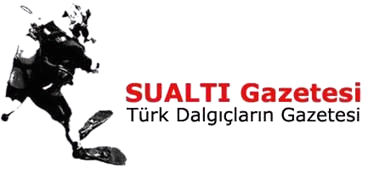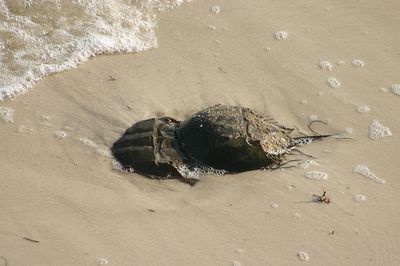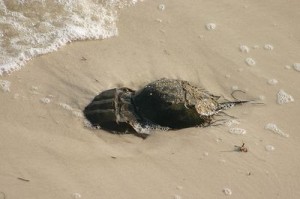The Florida Fish and Wildlife Conservation Commission is looking for citizen-scientists – spies basically – who are willing to report on mating habits of horseshoe crabs whenever they come across them.
Horseshoe crabs have been spawning for millions of years and Florida beaches in spring are a favorite hot spot, particularly at high tide just before, during or after a full moon.
Check your calendar because that’s about now. Full moon is Sunday. New moon on March 30.
FWC wants to know if you see them. Wants to know if you see them mating. Wants to know how many other crabs are hanging around while a mating pair… um, you know, mates.
In case you’re not sure what that would look like, the FWC has these notes:
Mating crabs “pair up,” with the smaller male on top of the larger female. Other male crabs may also be present around the couple.
If you happen to witness this scene, FWC authorities ask that you take note of how many you see, how many are mating adults, how many are juvenile – the ones 4 inches wide or smaller.
For each sighting, include the date, time, location, the ‘habitat type’ and ‘environmental conditions’ – was it high tide, full moon, for example.
You won’t be the first to invade their privacy. The survey program began in April 2002. From then until the end of 2013, 2,831 reports have been filed to FWC in Florida.
Horseshoe crabs are important to the marine ecosystem. Their eggs are meals for animals such as red knot birds, who rely on the crab eggs to fuel their lengthy migrations.
And if that’s not your concern, consider that pharmaceutical companies use horseshoe crab blood to ensure intravenous drugs and vaccines are bacteria-free and sterile. They’re being used in cancer research too, according to the FWC.
Here’s how you can contribute to the horseshoe crab data:
Go to MyFWC.com/Contact and go to “Horseshoe Crab Nesting Activity” for the “Submit a Horseshoe Crab Survey” link, then select “Florida Horseshoe Crab Spawning Beach Survey.” You can also report findings via email at horseshoe@MyFWC.com or by phone at 866-252-9326.







